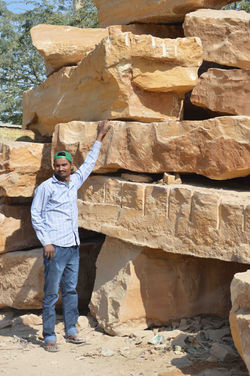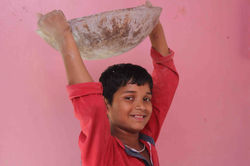School Washrooms For The Merasi School ~ Jaisalmer, Rajasthan, India
 |  |  |  |  |
|---|---|---|---|---|
 |  |  |  |  |
 |  |  |  |  |
 |  |  |  |  |
 |  |  |  |  |
 |  |  |  |  |
 |  |  |  |
The Need for Toilets and The Merasi School Background
The Merasi of northwestern India carry a powerful musical legacy, ancient yet intact. They also carry the burden of the still enduring caste system. To reclaim their identity as storytellers, the Merasi of Jaisalmer have shed the derogatory name Manganiyar, meaning beggars. Identifying as Merasi meaning musicians, is a poignant assertion of self-determination.
The Merasi School was opened in 2007 and is the only learning space where Merasi children are welcomed and treated with respect. It functioned for ten years with a funky single toilet. When a sink was installed in 2010, coordinating with the Merasi Health initiative, suddenly our students were washing up like small surgeons. Prior to that, buckets were the go to for handwashing. Clay water pots were used for drinking until WaterBridge Outreach supplied the Merasi School with a sizeable water storage tank along with a purification machine in 2015 to supply filtered water.
Now thanks once again to a wonderful alliance with WaterBridge Outreach, we have built two gender-specific stone-tiled toilets. They are made of the Thar Desert sandstone that along with the dunes earned Jaisalmer the name “The Golden City”. The days of the funky toilet at Merasi School are no more and the ribbon cutting ceremony was quite a celebration. Building in stone can be daunting at times. Irphan was a student who jumped in to help every single day and was handed scissors to do the ribbon honors along with LKSS Director Dr. Sarwar Khan. This spring our toilets stand as physical symbols of progress.
Two NGOs Collaborate Across Seas
New York-based Folk Arts Rajasthan (FAR) and India-based Lok Kala Sagar Sansthan (LKSS), meaning local folk arts society, are nonprofit NGOs bound together by a shared vision.
This collaboration is preserving an intangible cultural heritage once on the brink of extinction and is striving to achieve social justice by supporting educational programming perpetuating the Merasi cultural legacy, while balancing the challenges of modernization in the face of obstinate hierarchical norms.
Photo Credits: Jules Feeney, Sarwar Khan, the Merasi youth, and Karen Lukas




